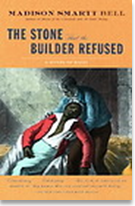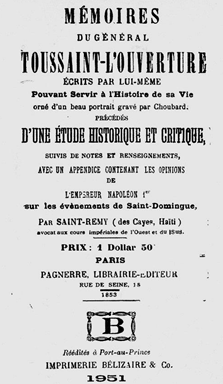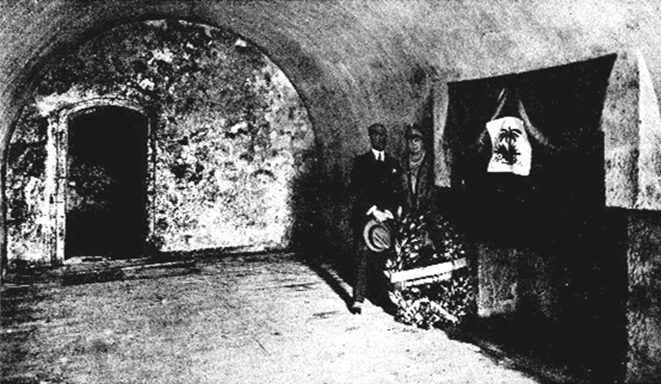 "Toussaint’s Last Days" by Madison Smartt Bell, Ph.D.
"Toussaint’s Last Days" by Madison Smartt Bell, Ph.D.
Bell is Professor of English at Goucher College. He is the author of a three-volume series on Louverture and the Haitian Revolution, which includes All Souls’ Rising (1995), Master of the Crossroads (2000), and The Stone that the Builder Refused (2004).
Toussaint Louverture was brought to the dungeon at the Fort de Joux, in the French Alps near the Swiss border, on the night of August 22, 1802; he would never leave the cell alive. He arrived angry at the many indignities he had suffered since his arrest in Saint Domingue, and energized to prepare himself for a trial. During his first weeks at the Fort de Joux, he composed, with the help of a secretary, a memoir intended as a brief in his own defense—a document deliberately misleading in some ways, though in others revealing of his career and personality.
In the past, Toussaint had successfully justified himself against representatives of the French Government (Sonthonax, Hédouville) with whom he’d clashed in Saint Domingue. But First Consul Napoleon Bonaparte, though technically Toussaint’s ultimate military superior, paid no attention to Toussaint’s appeal to bring his case before a military tribunal. Captain General Leclerc had written: "You cannot possibly keep Toussaint at too great a distance from the sea, nor put him in a prison too sure; that man has fanaticized this country to such a point that his presence here would set it on fire all over again" (Roussier, 183). Napoleon appeared to agree. The intention was for Toussaint to be forgotten in his isolated prison, where due to the cold climate and other privations he was not expected to live long.
In fact, Toussaint survived a little more than seven months at the Fort de Joux. In the conclusion of his memoir he had written, with a certain insight into Napoleon’s plan for him: "Is it not to cut off someone’s legs and order him to walk? Is it not to cut out his tongue and tell him to talk? Is it not to bury a man alive?" (Saint-Remy, 86) No one wanted to make him a martyr. His bones were lost in a potter’s field, but his spirit, never to be suppressed, helped carry the Haitian Revolution to ultimate victory.

